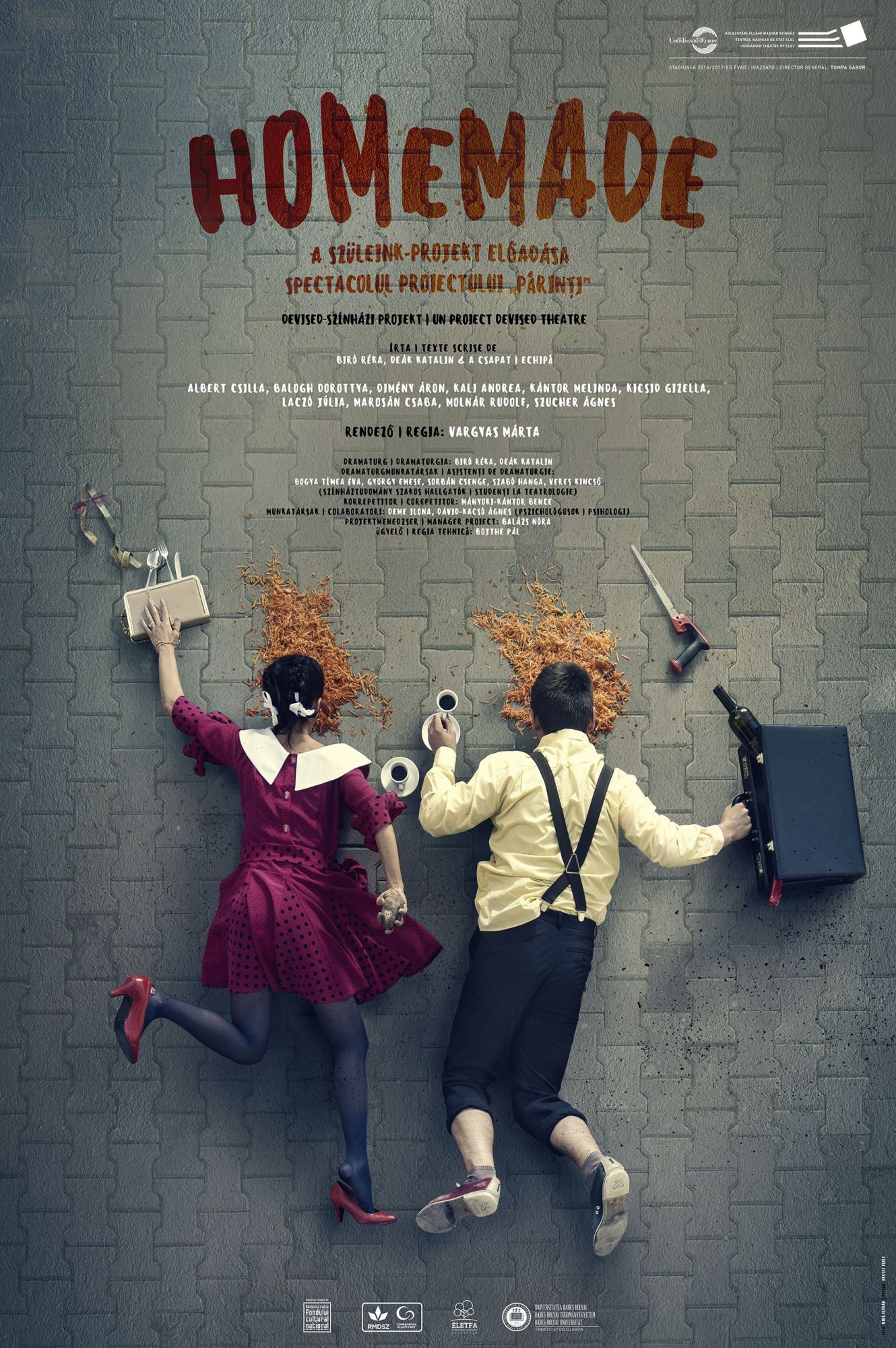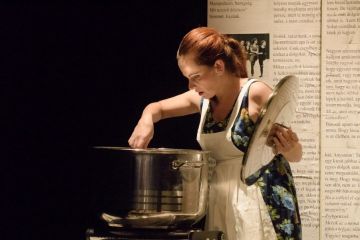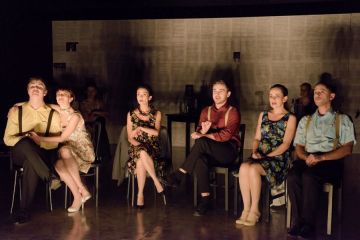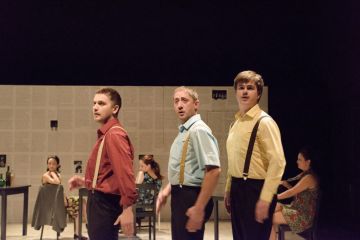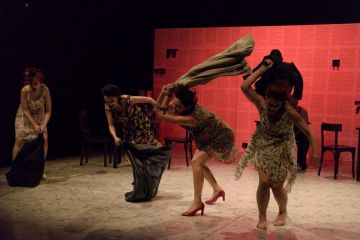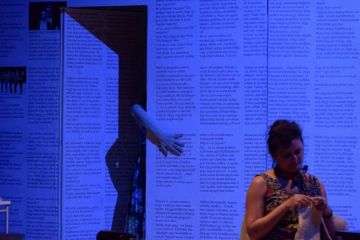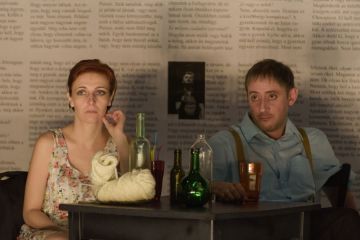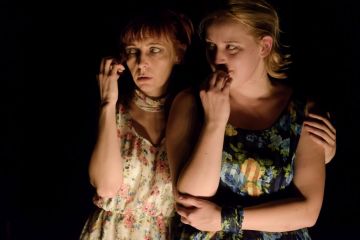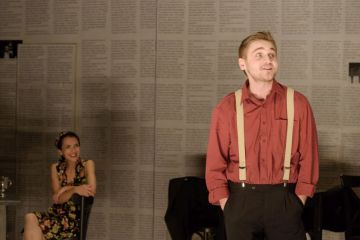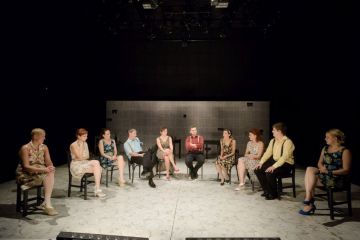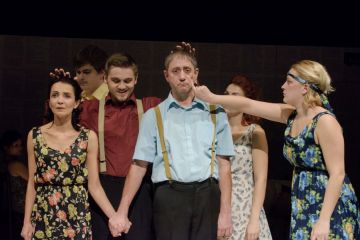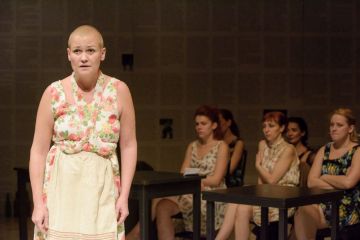Homemade
a devised theatre project
Studio
RO

12+

2h 45' with intermission
Csilla Albert
Áron Dimény
Andrea Kali
Melinda Kántor
Csaba Marosán
Rudolf Molnár
Júlia Laczó
Gizella Kicsid
Ágnes Szucher
Dorottya Balogh / Tímea Jerovszky
directed by
Márta Vargyas dramaturg
Réka Biró, Katalin Deák dramaturg's assistant
Tímea Éva Bogya, Emese György, Csenge Sorbán, Hanga Szabó, Kincső Veres, dramaturgy students collaborator
Ilona Deme, Ágnes Dávid Kacsó, psychologists project manager
Nóra Balázs correpetition
Bence Mányoki-Kántor stage manager
Pál Böjthe
Áron Dimény
Andrea Kali
Melinda Kántor
Csaba Marosán
Rudolf Molnár
Júlia Laczó
Gizella Kicsid
Ágnes Szucher
Dorottya Balogh / Tímea Jerovszky
directed by
Márta Vargyas
Réka Biró, Katalin Deák
Tímea Éva Bogya, Emese György, Csenge Sorbán, Hanga Szabó, Kincső Veres, dramaturgy students
Ilona Deme, Ágnes Dávid Kacsó, psychologists
Nóra Balázs
Bence Mányoki-Kántor
Pál Böjthe
Date of the opening: november 05, 2016
The project is a creative process combined with a research endeavor that intends to start a dialogue concerning the contemporary state of families living in Romania, in such a way in which it continuously monitors the event participants.
Objective: to establish a multidisciplinary scientific research team, whose members are personally interested in the topic; involving experts who can effectively handle their own team; involving a director, actor and dramaturge who can transform the collected material and several questions arising during the research phase of the project into a suitable raw material for a theatrical performance.
In March 2016 more than 70 in-depth interviews were carried out in Transylvania with young people between the ages of 12 and 19, as well as with their parents concerning the parent-child relationship. The questions included within these interviews were carefully formulated with the help of psychologists, sociologists, social workers and pedagogues, in order to receive the most accurate responses. The rehearsal process that began in June was complemented by a one-week long summer workshop in August, led by András Urbán. The team members of the unconventional creative process – actors, acting students, students of theater studies – can try out a variety of tasks: they can write, play, put forth ideas, reflect and ask questions.
Our goal is to get familiarized with the relationships arising within families, so as to be able to address them using the instruments of contemporary art. We are confident that this event will help our community to become aware of the problems that exist within the family, and to start a dialogue about them, while jointly considering possible solutions to these issues.
Objective: to establish a multidisciplinary scientific research team, whose members are personally interested in the topic; involving experts who can effectively handle their own team; involving a director, actor and dramaturge who can transform the collected material and several questions arising during the research phase of the project into a suitable raw material for a theatrical performance.
In March 2016 more than 70 in-depth interviews were carried out in Transylvania with young people between the ages of 12 and 19, as well as with their parents concerning the parent-child relationship. The questions included within these interviews were carefully formulated with the help of psychologists, sociologists, social workers and pedagogues, in order to receive the most accurate responses. The rehearsal process that began in June was complemented by a one-week long summer workshop in August, led by András Urbán. The team members of the unconventional creative process – actors, acting students, students of theater studies – can try out a variety of tasks: they can write, play, put forth ideas, reflect and ask questions.
Our goal is to get familiarized with the relationships arising within families, so as to be able to address them using the instruments of contemporary art. We are confident that this event will help our community to become aware of the problems that exist within the family, and to start a dialogue about them, while jointly considering possible solutions to these issues.









